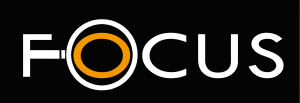
Throughout the world, legal gender recognition remains a major concern for trans human rights defenders. It is a crucial component of gender self-determination. It helps enhance a sense of ‘normalcy’ to the lives of trans people. LGR is also a matter of bodily autonomy. It marks the legal recognition of one’s affirmation of who they really are. This legal process leading to the affirmation of authenticity continues to be one that is frowned upon in many countries. Some countries have imposed legislation that concern trans citizens, with next to no meaningful consultative processes and engagements with trans communities in all their diversity.
This leads to trans-specific laws that are in fact extremely detrimental to the pursuit of human rights, such as laws that imperatively require GRS in order to pursue a process of LGR. In many countries, governments and lawmakers remain oblivious to the ableism and exclusionary dynamics of such laws. The Trans Legal Mapping Report is a unique piece of research that documents LGR provisions in some 153 countries. The report also includes a focus on de facto and de jure criminalization. From academic institutions to supranational bodies and non-profit sector partners, the TLMR is considered an invaluable resource on the state of LGR around the world.
In developing this toolkit based on TLMR, our primary objective was to craft a document that makes TLMR accessible to a broad community worldwide, and very especially, to trans human rights defenders across the world. Whereas TLMR remains a robust document of legal research, this toolkit has been written and designed by two trans human rights defenders. Its rationale is indeed a ‘by us, and for us’ approach – guided by a strong commitment to make TLMR more accessible and emphasize the importance of data gathering for LGR and broader trans rights advocacy goals. This toolkit also discusses how community-focused research data can be used to strengthen your international advocacy, especially with United Nations bodies. Overall, this toolkit is intended to be a useful and relevant publication to trans human rights defenders worldwide. It is grounded in the long tradition of trans human rights advocacy remaining locally-grounded, serving the best interests of our communities.
ILGA World: Chamindra Weerawardhana, Tristán López, Shalaka Pai, Towards Trans Liberation: Advocacy for Legal Gender Recognition, (Geneva: ILGA, December 2021).

